UC Berkeley has long been a national hub for student activism, from the free speech rallies of the 1960s to more recent protests to block far-right figureheads like Anne Coulter and Milo Yiannopoulos from speaking on campus.
Campus Protests Are Out (for Now), But Student Activism at UC Berkeley Is Still Alive and Well
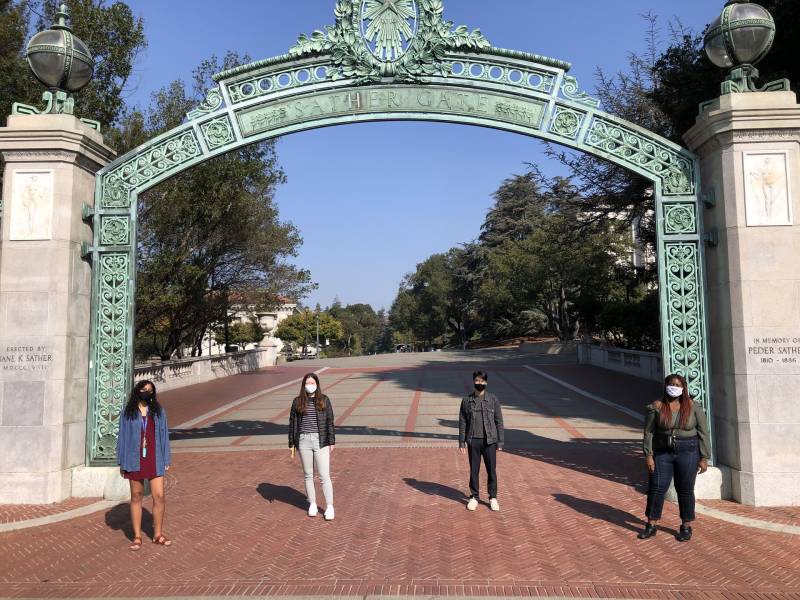
Sproul Plaza is usually the bustling heart of those activism efforts, not to mention one of the most trafficked thoroughfares on campus.
But these days, with many COVID-19 restrictions still in place, the plaza is pretty sleepy; aside from the sound of maintenance trucks, it's largely empty and quiet.
"Usually there are students handing fliers directly in your face about issues that they're passionate about and organizations that they want you to join," said UC Berkeley junior and student activist Sam Warren, describing a typical pre-pandemic scene at the plaza.
This year, however, university officials are barring large in-person gatherings on campus because of the pandemic. But that has hardly stopped students from continuing to campaign for causes they care about.
“It is an unprecedented semester," said Nicole Anyanwu, a senior majoring in molecular biology. "Students are going to school online, but they don't have access to the same academic resources at all.”
A student senator, Anyanwu said many of her peers are facing financial instability.
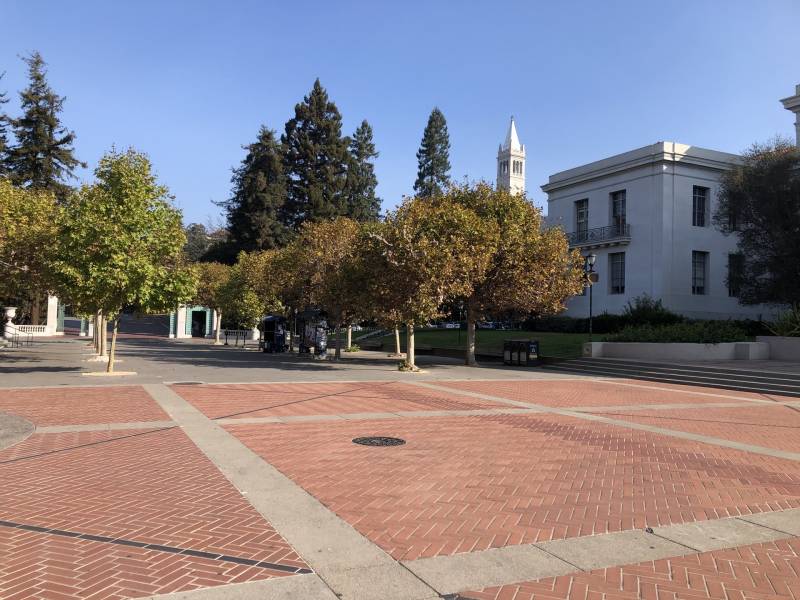
“Many students have lost their homes,” she said. “And then, the general climate of what's going on around the nation — fires, protests, elections, all sorts of chaotic things. How do you rectify all of that?”
Like her fellow student activists, Anyanwu has had to find new ways this semester of organizing around social and political issues.
“We have been repeatedly conveying the message to our student organizations that all of their activities need to be virtual,” said Sunny Lee, UC Berkeley's assistant vice chancellor and dean of students. “We have a COVID-19 temporary provision to our student code of conduct, due to California’s public health guidance for higher education and local public health orders, that prohibits student organizations from sponsoring or organizing in-person meetings, gatherings, and events for students on or off-campus.”
So, like almost everything else, a lot of the organizing has moved online, from protests and petitions, to crowdfunding efforts on behalf of students in need.
“Getting through COVID is getting through COVID with the whole village,” said senior Derek Imai, who this year is also the external affairs vice president for the Associated Students of the University of California (ASUC). “And I think really, what I've seen on Facebook, is when friends are financially struggling or going through something, people will fundraise for their friends and communities.”
At a recent webinar, Miyako Iwata, a senior, answered students’ questions about the upcoming national election. The session kicked off with a fundamental question to participants: "Why is voting important?"
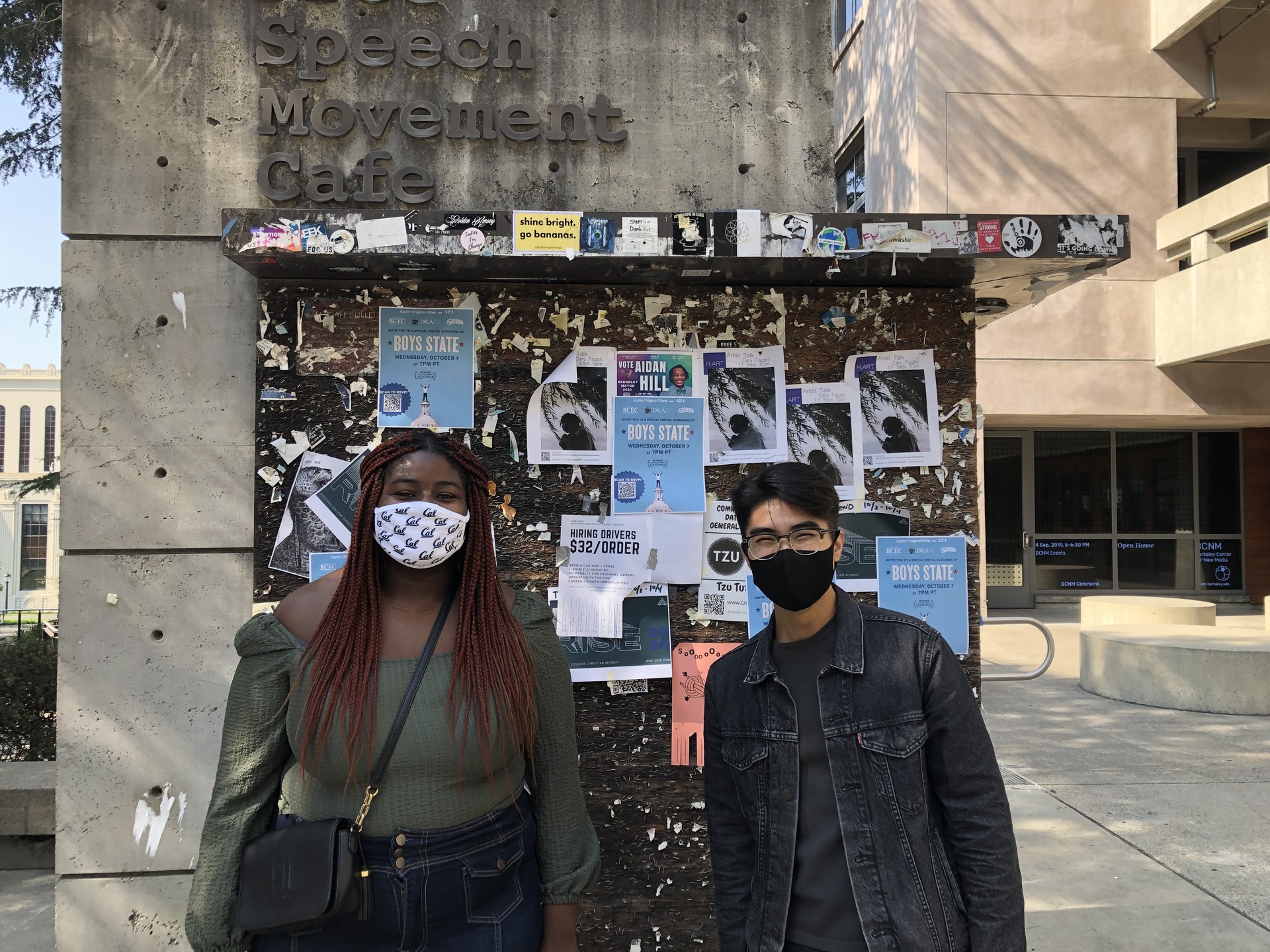
A recent Knight Foundation poll found that college students plan to vote in large numbers, but many have major concerns about the validity of their vote and the fairness of the electoral process.
“There is this myth that our vote, especially as California voters, is just a drop in the bucket and that it doesn't make a difference,” Iwata told the group of virtually-assembled students. “But the fact of the matter is that actually our vote has a huge potential to make our voices heard.”
The latest Tufts University National Study of Learning, Voting and Engagement found that UC Berkeley students vote at slightly higher rates than the national student average. Still, Iwata, who heads up UC Berkeley's Vote Coalition, was disappointed with turnout in 2016, when just over 50% of the school's eligible student voters cast a ballot. She’s passionate about increasing that number this time around.
“We're a campus known for our activism,” Iwata said. “But we could certainly be doing a lot better.”
She and her team are currently attending a flurry of online meetings held by various groups and clubs around campus to underscore the importance of voting.
And their web-based petition, demanding a day off from class so students have the option of voting more easily in person, currently has more than 1,000 signatures.
“If we truly want to be a campus that is free of voter suppression and truly committed to the purpose of civic engagement, then we would have an Election Day non-instructional day,” Iwata said.
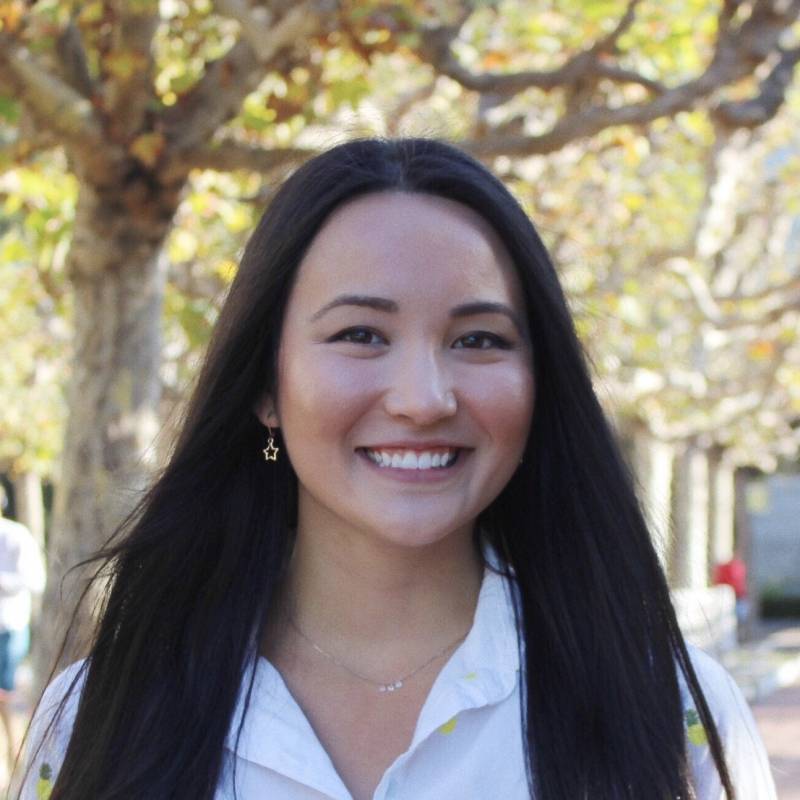
Despite the obvious obstacles, students have found impressive, creative ways to remain politically engaged, said Lee, the dean of students.
But she also has concerns.
"Unfortunately, we've had our share of Zoom bombing incidents," she said.
Lee said both the campus and city police departments, and even the FBI, have been called in to investigate Zoom bombing incidents in recent months.
One such incident, involving hate speech, occurred on Sept. 9 at an ASUC public meeting on Facebook — while Black Student Union External Vice President Kyra Abrams delivered an impassioned speech urging students to support Proposition 16, a measure to remove California's affirmative action ban.
“We support affirmative action," Abrams said. "If you don't support Prop 16, you cannot say Black Lives Matter ever again.”
Suddenly, a group of gatecrashers burst into the meeting, scrawled the n-word across the screen, blasted loud music and jeered.
Abrams continued with poise.
“If there's any opposition tonight, after that just happened, I see how you guys really feel about Black lives," she said.
The event's organizers said the meeting was public, and that ASUC members would have to vote on restricting access to future meetings.
Lee said the campus administration is monitoring these types of incidents, though the perpetrators can be hard to track.
“We're trying to do everything we can in terms of prevention, education and equipping students with the right tools,” she said.
In addition to dealing with major financial crises resulting from the pandemic, university officials around the country have been scrambling to adopt new rules for student activism, with few protocols in place.
And regardless of how well they are prepared to handle activism on campus, administrators can’t stop students — or protect them — if they decide to demonstrate off campus, as many have done throughout the pandemic.
Yet the UC Berkeley campus maintains its place in many students' hearts as the center for their activism.
Riya Master, a junior, said she misses the energy of on-campus gatherings. She’s been trying to get students to fill out the 2020 U.S. Census, selling it as an important way to bring in much-needed funds for the local community. And it's been a tough process.
“We've been doing giveaways. We've been doing census videos,” Master said. “And frankly, we haven't seen that much of an increase in the number of people who are filling it out.”
Master said things would be much easier if her team could do in-person outreach right on Sproul Plaza.
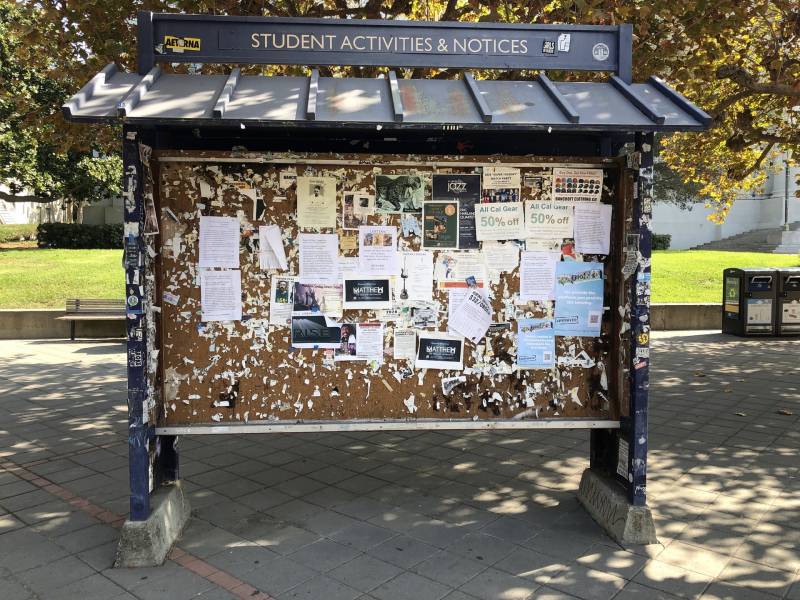
“When kids are walking through, we'll literally just pull them aside for three minutes, and be like, ‘Hey! Can you fill this out right here on a computer?’ Super easy access,” she said. “And it just reduces that friction that's required when we're online and saying, ‘Hey, can you go to this link?’ ”
While the university can’t officially sanction in-person activism on campus per local public health orders, Lee said, there is some measure of at least unofficial support for gatherings of under 12 people that are held outdoors, with social distancing and mask requirements in place.
“We support students exercising their First Amendment rights,” Lee said. “There's nothing that replaces the energy, the spirit, the camaraderie which is gathering in person. In-person activity will come back.”
